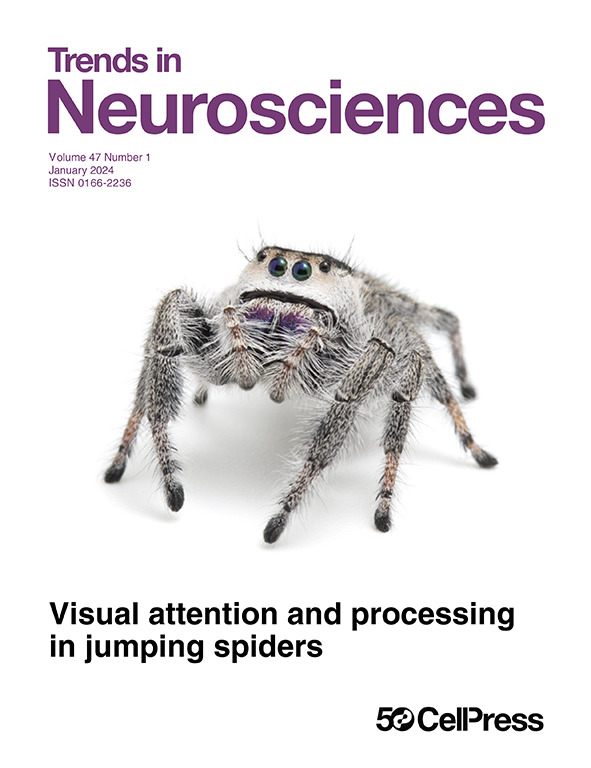利用UltraID-LIPA捕获α-突触核蛋白聚集相互作用。
IF 15.1
1区 医学
Q1 NEUROSCIENCES
引用次数: 0
摘要
Teixeira等人提出了超辅助光诱导蛋白聚集(UltraID-LIPA)技术,该技术将α-突触核蛋白聚集的光遗传诱导与基于接近度的蛋白质组学相结合。该系统能够高分辨率捕获活细胞中的早期聚集事件,并涉及已知和新的内溶酶体蛋白,为解剖突触核蛋白病的早期致病机制提供了一个强大的框架,并指导未来的创新。本文章由计算机程序翻译,如有差异,请以英文原文为准。
Capturing α-synuclein aggregation interactors using UltraID-LIPA.
Teixeira et al. present UltraID-light-inducible protein aggregation (UltraID-LIPA), a technique that combines optogenetic induction of α-synuclein aggregation with proximity-based proteomics. This system enables high-resolution capture of early aggregation events in live cells and implicates known and novel endolysosomal proteins, offering a robust framework for dissecting early pathogenic mechanisms in synucleinopathies and guiding future innovations.
求助全文
通过发布文献求助,成功后即可免费获取论文全文。
去求助
来源期刊

Trends in Neurosciences
医学-神经科学
CiteScore
26.50
自引率
1.30%
发文量
123
审稿时长
6-12 weeks
期刊介绍:
For over four decades, Trends in Neurosciences (TINS) has been a prominent source of inspiring reviews and commentaries across all disciplines of neuroscience. TINS is a monthly, peer-reviewed journal, and its articles are curated by the Editor and authored by leading researchers in their respective fields. The journal communicates exciting advances in brain research, serves as a voice for the global neuroscience community, and highlights the contribution of neuroscientific research to medicine and society.
 求助内容:
求助内容: 应助结果提醒方式:
应助结果提醒方式:


